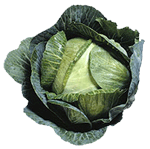In Nepal, a farmer named Budhiman Tamang has a secret sauce for growing amazing crops. His cabbages, according to Environmental Health News, are double the size of the average cabbage in market where he sells his wares. Here is the secret, and also one of the greatest pairs of sentences ever:
Two years ago, Tamang couldn’t even grow enough cabbages to sell. But since then, he’s learned the magic of human urine.
No, he’s not peeing directly into his crops. (It would probably work, but it’s hard to get an even distribution.) Through a U.S. nonprofit, Tamang came into possession of an “ecological sanitation” toilet, which separates urine from other human waste. The urine collects in a tub, and Tamang sprays it on his crops. Plants deal well with the nutrients that humans excrete, and most of urine is water, anyway. It’s basically like nitrogen fertilizer. And it’s not just good for the crops — it also reduces waste. No pun intended.
Separating urine at the source saves resources that would otherwise be disposed of as waste through expensive sewage treatment systems.
By replacing mineral fertilizer with urine, farmers also can slightly offset their carbon footprint, and reduce the need for phosphorous found in reserves that are being depleted. In countries like Nepal, where the supply of mineral fertilizer is limited, urine offers an accessible alternative.
Initially, the foundation supplying the special toilets didn’t get a whole lot of interest. But farmers like Tamang have been successful enough that demand has increased:
Where 37 percent of households chose urine-separating toilets in 2011, almost 65 percent opted for them in 2012, with more expected in 2013. Those who opted for the regular toilets have started voicing regret, some even using makeshift containers to collect their urine, and others have considered purchasing an ecosan pan from their own savings.
There’s some worry that over time, the concentrated salts in urine will screw up the soil chemistry. But, for now, more pee on more crops! More pee everywhere!



